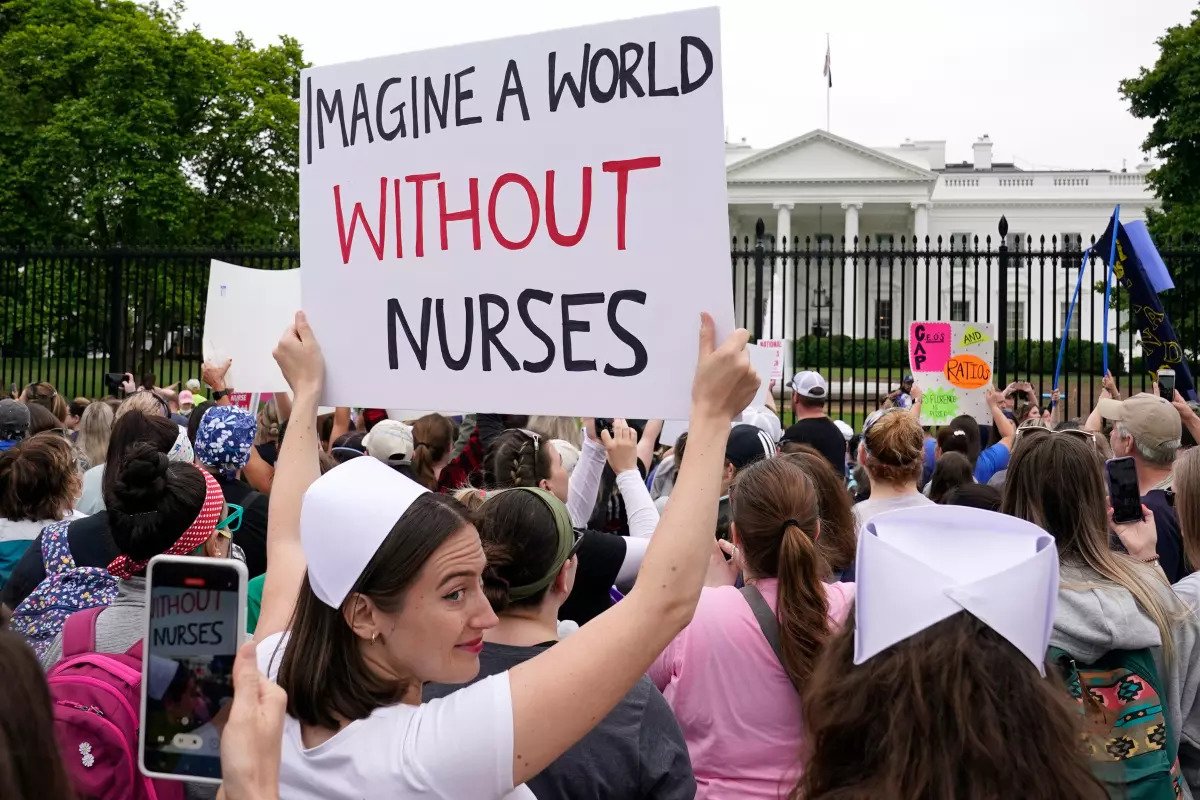
U.S. Removes Nursing from ‘Professional Degree’ List — Sparking Outcry Amid Major Loan Changes
New student-loan policy under Donald Trump administration excludes nursing and several health-care fields, limiting graduate borrowing and alarming healthcare leaders
The U.S. Department of Education has redefined the classification of “professional degrees,” formally excluding nursing — along with several other fields — from the higher federal loan limits under the “One Big Beautiful Bill Act.” Under the new rules, students in nursing and other excluded programmes will face significantly lower borrowing caps beginning July 2026.
Whereas professional-degree students may borrow up to $50,000 annually (with a lifetime cap of $200,000), graduate students in excluded fields will be limited to $20,500 per year and a total of $100,000.
This revision ends the previously broader eligibility for graduate nursing degrees, sparking alarm among nursing associations, healthcare institutions and many prospective students.
Leadership of key nursing organisations has warned that limiting loan access threatens to intensify existing shortages of qualified nurses — particularly at the advanced-practice and educator levels, where graduate credentials are required.
One nursing leader described the decision as a “serious blow to the health of our nation,” citing the critical role of nurse practitioners and faculty nurses in maintaining patient care and training the next generation of care providers.
Proponents of the change argue the policy is designed to curb excessive borrowing and encourage universities to lower tuition costs.
They note that the new definition draws on a 1965 law that detailed a limited set of professions considered “professional.” Yet critics say the exclusion overlooks the essential role and rigorous training of nurses, and point out that the reclassification will disproportionately affect women, who comprise the majority of the nursing workforce.
With the changes scheduled to take effect in mid-2026, nursing schools, health-care providers and students are scrambling to assess the impact.
Many of those considering advanced degrees say they may reconsider or delay enrolment, while some institutions warn the policy could hinder efforts to expand the nursing workforce — precisely when demand for qualified nurses remains high nationwide.
The policy shift has generated widespread debate over equity in higher education funding, workforce readiness and the long-term implications for public health.
Whereas professional-degree students may borrow up to $50,000 annually (with a lifetime cap of $200,000), graduate students in excluded fields will be limited to $20,500 per year and a total of $100,000.
This revision ends the previously broader eligibility for graduate nursing degrees, sparking alarm among nursing associations, healthcare institutions and many prospective students.
Leadership of key nursing organisations has warned that limiting loan access threatens to intensify existing shortages of qualified nurses — particularly at the advanced-practice and educator levels, where graduate credentials are required.
One nursing leader described the decision as a “serious blow to the health of our nation,” citing the critical role of nurse practitioners and faculty nurses in maintaining patient care and training the next generation of care providers.
Proponents of the change argue the policy is designed to curb excessive borrowing and encourage universities to lower tuition costs.
They note that the new definition draws on a 1965 law that detailed a limited set of professions considered “professional.” Yet critics say the exclusion overlooks the essential role and rigorous training of nurses, and point out that the reclassification will disproportionately affect women, who comprise the majority of the nursing workforce.
With the changes scheduled to take effect in mid-2026, nursing schools, health-care providers and students are scrambling to assess the impact.
Many of those considering advanced degrees say they may reconsider or delay enrolment, while some institutions warn the policy could hinder efforts to expand the nursing workforce — precisely when demand for qualified nurses remains high nationwide.
The policy shift has generated widespread debate over equity in higher education funding, workforce readiness and the long-term implications for public health.











